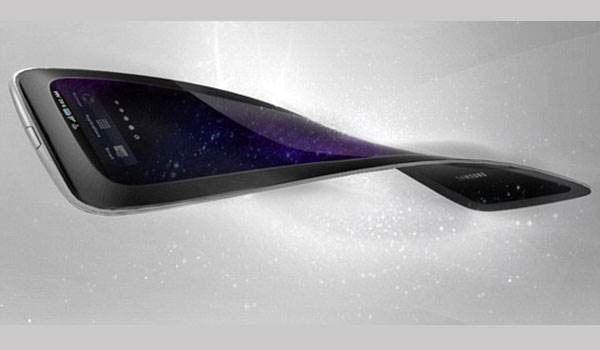With every launch of a new flagship, we see smartphone makers bringing bigger displays, more advanced biometric security features, enhanced camera capabilities or AR/VR features. But the next big thing in the smartphone market will surely be the bendable smartphone.
Samsung is believed to have already started work on such a smartphone, while other companies like LG or even Oppo are exploring the idea of a flexible display that would allow the device to bend in half. Chances are Samsung will be the first to introduce the foldable smartphone, possibly in 2019 as some technical issues still need to be solved.
Samsung’s Galaxy X will reportedly bend in half and feature a flexible OLED display, but scientists from the University of Exeter have created a new material that offers even more flexibility to smartphone makers, including in terms of design.
In order to achieve a truly flexible smartphone, the internal components would also have to flexible, not just the display. The newly created storage system made from graphene will replace the current flash memory in smartphones and other types of devices.
The lightest and strongest compound in the world
The novelty is that the hybrid graphene oxide-titanium oxide memory only takes 5 nanoseconds to write and read data. It’s also only 50 nanometers long and 8 nanometers thick, providing smartphone makers with enough leeway in terms of design and functionality of new devices.
In addition to being the lightest and strongest compound in the world, graphene is also the thinnest, measuring just one atom. The carbon-based material is also the best conductor of electricity, which would make it suitable to place inside devices like smartphones.
One disadvantage with this material is the complex process required to produce it. However, Samsung is known to have invested in research related to graphene and the company even filed some patent applications mentioning the material, according to a report. At this point, it’s difficult to say if storage memory units made out of graphene will ever make it to flexible smartphones, but the material is surely the best candidate for this.







